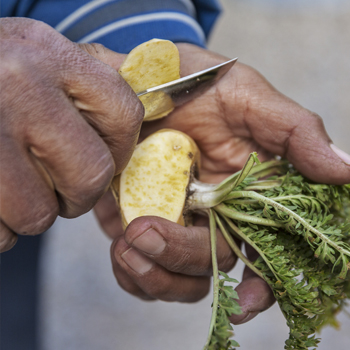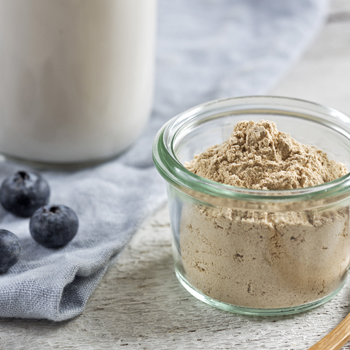Maca for Depression
Introduction
It’s normal to feel down or melancholy on occasion, but when sad feelings become a persistent companion, everything from work to relationships to health can suffer. In 2020, the World Health Organization estimated that 264 million people suffer from depression worldwide. In industrialized countries, like the United States, depression affects around 7% of the adult population. And depression among children is increasing.
Maybe it doesn’t have to be that way, and maybe a simple food from Peru can help. Using maca root for depression makes sense if you want to potentially address the issue from a natural and nutritional perspective.
Traditional treatments for depression include counseling, therapy and pharmaceutical drugs, but they may not suit everyone. And alternative treatments such as exercise, meditation and better nutrition are gaining popularity and getting some results.
Maca powder can certainly be included among these alternative or natural treatments. This root vegetable is recognized as an incredible nutritional powerhouse featuring nearly all amino acids, 10 vitamins, 12 minerals, 23 fatty acids as well as several nutrients unique to maca. But its ability to potentially reduce the symptoms of anxiety and depression go deeper than just nutrition. Maca root seems to support healthy brain chemistry and energy levels too. After years of experience, a lot of positive feedback, and a good amount of compelling research, we are truly excited by its potential.
So, if you are here to see if maca may be able to help you or a loved one overcome the lethargy and low energy associated with depression, please read on.
In this article, we will help you understand:
- What research says about maca for depression
- What people share about taking maca to help elevate their moods – including the owner of The Maca Team’s personal story
- Which types of depression maca may help
- What the potential side effects of taking maca are
- Which maca is best to take and how best to take it
Can Maca Help With Depression? – What The Research Says
As maca has increased in popularity over the past 20 years, more and more scientific studies have been performed on its many reported benefits.  Several of these have focused specifically on how maca relates to treating depression. Here we highlight 5 of them.
Several of these have focused specifically on how maca relates to treating depression. Here we highlight 5 of them.
2006 – Maca shows significant anti-depressant activity among mice
In this seminal study, published in “BMC Complementary Medicine and Therapies” mice given maca of any color were seen to be nearly twice as active as mice without maca in an extensive series of tests designed to measure depression.
2008 - Maca reduces depression in postmenopausal women
During this study, published in the journal “Menopause,” women were given 3.5 grams of maca daily over the course of six weeks. The preliminary conclusions were that maca “reduces psychological symptoms, including anxiety and depression…”
2014 – Maca increases noradrenaline and dopamine levels in mice
This study from the “Journal of Medicinal Food” tracked mice that were given maca while being exposed to “chronic and unpredictable stressors.” The mice given maca were significantly more active in standard tests for depression than their counterparts of the control group. Noradrenaline and dopamine, both of which support healthy, outcome oriented active behaviors were also increased by maca. The study concludes that maca shows “antidepressant-like effects,” activates “both noradrenergic and dopaminergic systems”, and reduces “oxidative stress in the mouse brain.”
2015- Maca reduces blood pressure and depression in postmenopausal women
Similar to the study from 2008 listed above, women were given 3.3g of maca daily for six weeks. The difference was that this study was performed on women in China. Interestingly, though, the results were the same. The study concludes that maca was seen “to reduce symptoms of depression and improve diastolic blood pressure in Chinese postmenopausal women.”
2017 – Maca (Lepidium meyenni) helps reduce stress and depression in mice
This article published in a Pakastani medical journal conclusively states that maca “is highly effective remedy for treatment of impotency and reduces stress and depression…”
How Maca Helps Depression – What Do Users Share?
The research above is especially promising as it applies not only to animals but also to humans. Also compelling is the fact that we’ve received many messages over the years from customers who have been surprised at how maca has helped them with their moods. You can read all of them by visiting our testimonials page, but here are a few highlights:
“I purchased MACA after a friend suggested it. I was having hormonal issues and libido issues, it took the MACA several weeks to ‘kick-in,’ BUT when it did — my life was forever changed. I encourage people to give it time to balance their ‘issues’ out, and then enjoy their new life… I stopped taking Celexa (anti-depressant) and feel way better on MACA than I ever did on Celexa… PLUS, it helps with my libido and the Celexa (along with most anti-depressants) inhibited my libido. I’ve had such AMAZING results, I’ve had numerous friends order it and RAVE about their own results. I’m a LIFE buyer of MACA because of the MAJOR positive results I’ve experienced!!” - Heather Martin
Note: Heather’s experience is confirmed by a study from 2015 that found maca to help restore libido in women who were taking anti-depressants
"My daughter and I wouldn't start our day without it. She just had a baby and was concerned about post-partum depression, and I am still struggling with menopausal symptoms, and the Premium Maca Powder is keeping us on track! It's a part of our morning green shake every day." – Judy
"I purchased gelatinized red for an energy boost which in turn helped with mild depression. I can hardly sit still anymore and love to work on  projects around the house. I find myself putting in a full day of activity and going strong until early evening. I told my doctor about how it helped me and he ordered it for his whole office. All of his staff have it every morning in their coffee. He knew of the product growing up in Peru and said his mother used to take it and she could clean a mean house. I have recommended it to others and everyone has had positive results." -Audi
projects around the house. I find myself putting in a full day of activity and going strong until early evening. I told my doctor about how it helped me and he ordered it for his whole office. All of his staff have it every morning in their coffee. He knew of the product growing up in Peru and said his mother used to take it and she could clean a mean house. I have recommended it to others and everyone has had positive results." -Audi
How Maca Helped The Owner Of The Maca Team With Depression
“My story with maca truly starts with depression and anxiety. I first heard of this simple food in the early 2000s at a raw vegan event. A few weeks later, a leading raw food chef stayed at my vegan community house and shared how taking about 9 grams of maca a day had helped pull her out of a long-time low mood. Since I had struggled with dysthymia earlier in my life, I was intrigued. And although I had largely treated it with high-quality St. Johns Wort several years earlier, I still found myself low in mood more than I liked. I soon added maca to my daily diet and the change was noticeable within a few weeks. I noticed more energy, a better attitude and overall felt better emotionally than I could remember. And to this day, the lows are never so low as before, are much farther in between, and last a much shorter time. Plus, maca really fuels my love of mountain biking!” - Mark Ament, owner of The Maca Team
What types of depression can maca help?
Based on all our research and experience we truly believe that maca root products are an excellent natural alternative for alleviating depression for people experiencing lighter levels of the disorder. Keep in mind that this is

our opinion and experience and that if you have any doubts or health concerns you should consult your preferred medical practitioner. Also, we would say that chronic and severe depression may require a more comprehensive treatment and intervention.
Here’s a list of depression symptoms that we believe maca can help:
- postpartum depression
- dysthymia – low level depression
- anxiety
- low energy
- lack of motivation
- lethargy
What are the potential side effects of taking maca to treat depression?
If you’ve ever seen an advertisement for a pharmaceutical drug, you will likely have noticed the long list of side-effects associated with it. Anti-depressant drugs are no exception.
The great news about maca is that it is a food that has no known side effects. People in Peru have been taking it in large quantities for 1000s of years. And anything that you might experience from taking it can be quickly mitigated by reducing the amount you take and/or the frequency you take it.
There are really three important things to know before starting to take maca.
One: If you do take medicine for high blood pressure, know that maca can increase blood circulation and can help lower blood pressure. If this is your case, please monitor your blood pressure as you take maca.
Two: Maca does contain iodine. 9g of maca (3 tablespoons) has about 70% of the RDA. If you are sensitive to iodine, please keep that in mind.
Three: If you have sensitive digestion, please choose a gelatinized maca product or a maca extract over a raw maca product. Gelatnizied maca is pre-cooked and is easier to digest.
For further information on other potential effects maca has and what to do about them please see our full article on best practices when taking maca.
Which maca is best to take for depression and how to best take it
Our experience and research shows that red maca is the highest in phytonutrient content and the most quickly acting. If you are taking maca root for depression specifically, we’d recommend that over our other colors of maca. However, as the research suggested above, all colors of maca can be effective for overcoming depression.
Taking maca for depression falls into a therapeutic usage of maca and that means dosage levels should be consistent over a long period of time (At least one month). Our recommendation for an adult of 150 pounds (65 kg) is to take 1-3 teaspoons (3-9 grams) of organic maca powder daily.
Also keep in mind that it may take several weeks up to a couple of months for Maca to provide the benefits you are looking for. Maca is a powerful food, but takes time to work.
Finally, if you’d like to see which maca we recommend for you, please visit our comprehensive maca finder page.
Enjoy the day!
![]()
